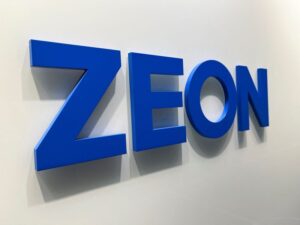Zeon Corporation’s Future in U.S. Production: Opportunities and Risks
In a pivotal moment for the chemical industry, Zeon Corporation, a renowned Japanese chemical company, is reevaluating its investment strategy in the United States. The CEO, Tetsuya Toyoshima, recently announced that by summer, the company will decide on the future of its planned expansion of binder production facilities in Texas. This expansion, initially slated to bolster production for lithium-ion batteries, was put on hold earlier this year due to the uncertain electric vehicle (EV) market landscape post-election.
The Impact of Political and Economic Shifts
Understanding the current investment climate is crucial, especially when external factors such as political changes spark uncertainty. Following the election of President Donald Trump, concerns regarding the state of the electric vehicle market arose, prompting Zeon to pause its Texas expansion plans. Toyoshima articulated the sentiment many in the industry share: “Uncertainty around investment is increasing with the volatility in American society, regulation, and other factors.”
The economic ramifications of fluctuating governmental policies, including tariffs, have had a ripple effect across supply chains. The implementation of tariffs has cast a shadow of apprehension over potential economic downturns, leading Toyoshima to express concerns about the unpredictability of the current market. “We can only see the tip of the iceberg,” he remarked. “Not knowing how big this iceberg is, there is a feeling of fear.”
Seizing Opportunities Amid Uncertainty
Despite the challenges, Zeon remains optimistic about the long-term growth prospects of the battery market. Toyoshima mentioned that this period of volatility should be perceived as an opportunity, especially with the transformative shift toward electric vehicles and renewable technologies. The proposed Texas investment is significant — totaling over 10 billion yen (approximately $70.52 million) — and highlights Zeon’s commitment to transformative innovation.
Importantly, as customers preemptively place orders to build their U.S. inventories, Zeon is adopting a cautious approach by maintaining a substantial cash buffer and minimizing inventory holdings. This strategy is designed to mitigate risks associated with potential market fluctuations and supply chain disruptions.
Diversifying Product Strategies
Zeon is not solely focused on the U.S. market. The company is simultaneously making strategic moves in Japan, planning to invest 70 billion yen in a new factory in Yamaguchi prefecture. This facility aims to produce specialty plastics targeting the growing demands of the life science and semiconductor sectors, further diversifying Zeon’s manufacturing capabilities and revenue streams.
As manufacturers of optical films for televisions sold in China, Zeon stands to be impacted should U.S. demand for TVs wane. This interconnectedness highlights the global nature of modern supply chains and the importance of resilient business strategies in navigating international markets.
Conclusion: Navigating the Future
As Zeon Corporation navigates these challenging waters, the decision to advance or delay its U.S. expansion carries significant implications not only for the company but for the broader industry as well. With a firm grounding in both historical innovation and forward-looking strategies, Zeon stands at a crossroads—where the choices made will define its trajectory in a transforming global marketplace.
For investors, staying informed about companies like Zeon and the broader implications of geopolitical and economic changes is imperative. As we continue to watch these developments unfold, it will be essential to consider how shifts in production, supply chain logistics, and market demands influence investment decisions.
Stay tuned with us at Extreme Investor Network for more insights and updates on the evolving landscape of finance and investment opportunities.

